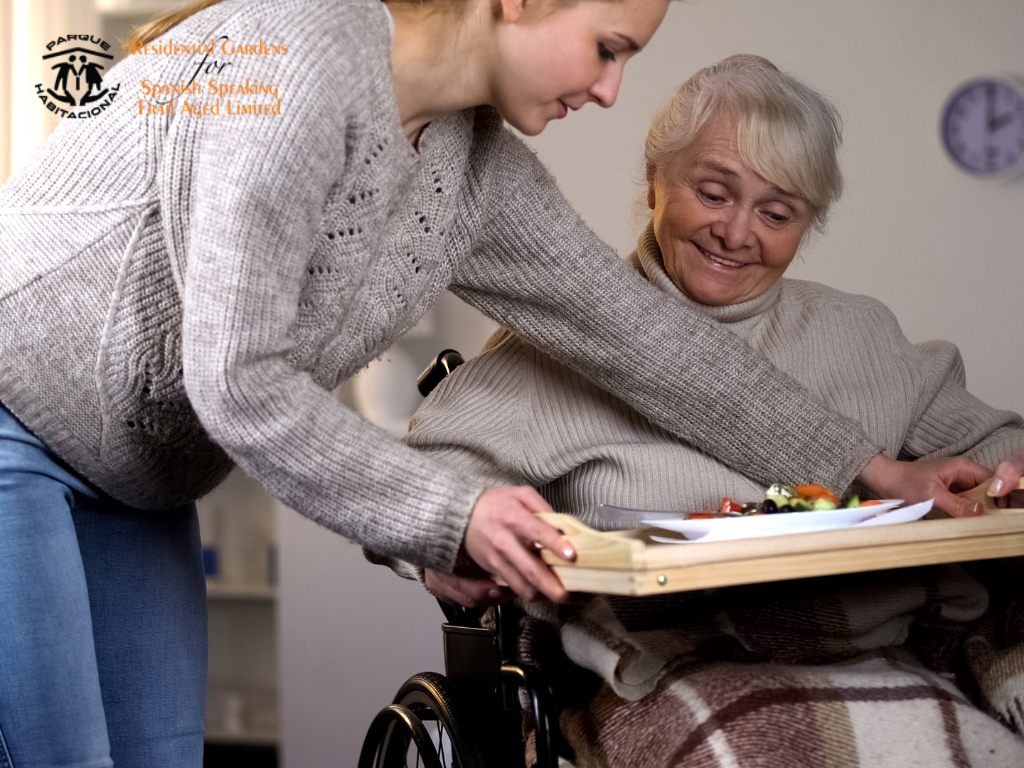Family visits play a crucial role in the emotional well-being of residents in residential aged care facilities. These visits provide residents with a sense of continuity and connection to their lives outside the facility. Regular interactions with family members can significantly reduce feelings of loneliness and isolation, which are common among elderly residents. The presence of loved ones offers emotional comfort, reassures residents that they are cared for, and helps maintain their mental health. Visits can also bring joy and a sense of normalcy, making the environment more homely and less institutional.
How Family Engagement Enhances Well-being
Engagement from family members goes beyond just visiting; it involves active participation in the resident’s daily life and care routines. Family involvement can lead to better health outcomes by encouraging residents to stay active and engaged in social activities. When families participate in activities organized by the facility, it not only strengthens the bond between the resident and their loved ones but also integrates the family into the community of the facility. This collective engagement can enhance the resident’s sense of belonging and well-being, contributing to their overall quality of life.
Communicating Effectively with Loved Ones in Residential Aged Care
Regular Communication Strategies
Maintaining regular communication with loved ones in residential aged care is essential for their emotional health. Establishing a consistent schedule helps residents feel remembered and valued. This can include phone calls, video chats, and written letters. Each method of communication has its own benefits; for instance, phone calls offer immediate interaction, while letters can be cherished and reread. Regular conversaation reassures residents that they remain an integral part of the family, which can help alleviate any feelings of abandonment or neglect.
Using Technology to Stay Connected
Advancements in technology have made it easier for families to stay connected with their loved ones in residential aged care facilities. Tools such as video calling apps, social media platforms, and instant messaging services can bridge the gap created by physical distance. Video calls, in particular, can be highly beneficial as they allow for face-to-face interaction, which can be more personal and comforting than voice calls alone. Many residential aged care facilities are equipped with the necessary technology and can assist residents in using these tools. Encouraging the use of technology not only facilitates regular communication but also helps residents stay mentally active and engaged with the modern world.
Participating in Care Planning and Decision Making
Collaborating with Care Staff
Active collaboration with care staff is vital for ensuring that residents receive personalized and comprehensive care. Families should regularly communicate with the staff to stay informed about the resident’s health status and any changes in their care plan. Participating in meetings with healthcare providers allows families to voice their concerns, ask questions, and provide input based on their intimate knowledge of the resident’s preferences and history. This collaborative approach ensures that care plans are holistic and tailored to the specific needs of the resident.
Understanding Care Plans and Their Importance
Understanding the intricacies of care plans is crucial for families supporting a loved one in residential aged care. Care plans outline the medical, emotional, and social needs of the resident and detail the strategies and interventions that the care team will implement. By familiarizing themselves with these plans, families can ensure that they are aligned with the care objectives and can advocate for any necessary adjustments. Knowledge of the care plan also enables families to monitor the quality of care being provided and to work alongside the staff in achieving the best possible outcomes for the resident.
Providing Emotional Support and Encouragement
Addressing Emotional Needs
Addressing the emotional needs of residents in residential aged care facilities is essential for their mental and emotional well-being. Families play a key role in providing this support through consistent emotional engagement and understanding. Listening to residents’ concerns, fears, and experiences can significantly impact their emotional health. Showing empathy and providing comfort during difficult times helps residents cope with the transitions and challenges they face. Additionally, celebrating milestones and achievements, no matter how small, can boost residents’ morale and provide a sense of accomplishment and joy.
Encouraging Participation in Activities
Encouraging loved ones to participate in activities organized by residential aged care facilities can greatly enhance their quality of life. Activities such as arts and crafts, exercise classes, social gatherings, and hobby groups are designed to keep residents physically active and socially engaged. Family members can motivate residents to join these activities, attend events with them, or even participate remotely through virtual events. Active participation in these activities helps combat feelings of isolation, promotes physical health, and fosters a sense of community among residents. Encouraging involvement in these activities shows support and interest in the resident’s daily life, which can be incredibly uplifting.
Advocating for Your Loved One’s Needs
Recognising and Addressing Concerns
As a family member, you play a crucial role in advocating for your loved one’s needs in a residential aged care facility. Pay close attention to their physical and emotional health during visits and communications. Look for signs of discomfort, changes in behaviour, or unmet needs. If you notice any issues, address them promptly with the facility’s staff. Keeping a record of your observations can be helpful when discussing concerns. By being proactive and attentive, you can ensure that your loved one receives the best possible care and support.
How to Effectively Communicate with Staff
Effective communication with the staff at residential aged care facilities is essential for advocating for your loved one. Establish a positive relationship with the caregivers, nurses, and administrators. Attend care meeetings and actively participate in discussions about your loved one’s care plan. Clearly articulate your concerns and ask questions to understand the care being provided. It’s important to approach these conversations with respect and cooperation, aiming for a collaborative effort to enhance the resident’s well-being. Regular communication with the staff ensures that you are informed about your loved one’s condition and that their needs are being met.
Understanding the Services Provided by Residential Aged Care Facilities
Overview of Available Services
Residential aged care facilities offer a range of services designed to meet the diverse needs of their residents. These services typically include medical and nursing care, personal care assistance, meal services, and recreational activities. Medical care covers routine health checks, medication management, and access to specialists as needed. Personal care includes assistance with daily activities such as bathing, dressing, and mobility. Facilities also provide nutritious meals tailored to residents’ dietary needs and preferences. Recreational activities are organised to promote social interaction, physical activity, and mental stimulation. Understanding these services helps families ensure that their loved ones receive comprehensive and holistic care.
Ensuring Comprehensive Care
To ensure your loved one receives comprehensive care, it’s important to regularly review the services provided by the residential aged care facility. Familiarise yourself with the care plan and ensure it is tailored to your loved one’s specific needs and preferences. Monitor the quality of care by maintaining open communication with the staff and participating in care reviews. Advocate for additional services if you believe they would benefit your loved one. Comprehensive care means addressing all aspects of a resident’s well-being, including physical, emotional, and social needs. By being actively involved, families can help ensure that their loved ones receive the best possible care.
Supporting Transition and Adjustment to Residential Aged Care
Helping with the Move
The transition to a residential aged care facilitsy can be challenging for both the resident and their family. To ease this process, help your loved one prepare for the move by involving them in decisions and packing their belongings. Bring familiar items from home to make their new living space feel more comfortable and personalised. On the day of the move, accompany them to the facility and stay with them as they settle in. Provide emotional support and reassurance during this time, helping them adjust to the new environment.
Facilitating a Smooth Adjustment Period
After the move, it’s important to support your loved one as they adjust to life in the residential aged care facility. Encourage them to participate in activities and socialise with other residents. Regular visits and communication can help them feel connected and less isolated. Be patient and understanding as they adapt to their new surroundings and routines. Work closely with the facility staff to address any concerns or issues that arise during the adjustment period. By providing ongoing support and engagement, families can help their loved ones settle in and thrive in their new home.








